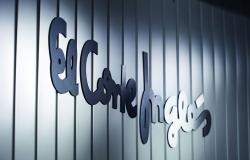DUSSELDORF (Special Envoy) – Advice: If you get sick in Germany, pray it’s not Sunday. Or at least take the precaution of having a robust emergency first aid kit. Because if you need remedies to get by, You will not find any open pharmacy.
Not even hosting Euro 2024 completely breaks with tradition. It is almost a utopia to find an open business, but it is not frowned upon: 54 percent of Germans support them being closed. In case of emergency, food is only available at gas stations because only some bakeries open their doors. Magazine Der Spiegel It is estimated that only a quarter of workers carry out their work on Sundays regularly.
To the point where it is the rule that activities such as drilling or mowing the lawn must wait until Monday. Glass bottles cannot be recycled either so as not to disturb the peace. Noise can lead to warnings from neighbors or complaints to the Police.
A long-standing custom
Sunday is sacred and the right to rest is part of the constitution. In fact, solid grounds are requested to accept exceptions. “All judges and the people in the cities, as well as the practice of arts and crafts, must rest on the day of the sun,” reads the edict of Constantine the Great, published on March 3, 321. In German, Sunday It is called Sonntag or “day of the sun.”
What is the routine of the average German like? According to a report from the Deutsche Welle, 60 percent wake up after 8 in the morning and among the usual plans are attending mass in churches, visiting markets to buy second-hand clothes or souvenirs and at 3 in the afternoon, getting together to chat in a candy store, coffee with cake through. Of course In the context of a Euro, everything can vary.
This is how Germany-Switzerland was experienced in Dusseldorf
This Sunday, ESPN.com toured the Hofgarten, one of Dusseldorf’s many parks, and witnessed families enjoying the outdoors. Girls and boys in children’s games, walks with pets, picnics on the grass, ping pong games on the available tables, bike rides or electric skateboards decorate the scene. The pleasant temperature and the appearance of the sun are highly valued in these parts. And if it arrives on a Sunday, so much more.
The calm of the day was contrasted with the noise that began near sunset. Germany was playing against Switzerland for the Euro Cup and the many bars with TV screens on the picturesque Ratinger and Muhlenstrabe streets, among others in the Old Centre, were packed. Beyond the importance of the game, meeting friends seems to prevail, always with a beer in hand.
A few blocks from there, The Fan Zone at Burgplatz filled up early and hundreds of sympathizers waited behind the fences for a chance to enter. Among the lucky ones, 90 percent local, a few from Spain and Albania (they play this Monday at the Merkur Spiel-Arena), a boy, who was not Argentine, with Messi’s shirt and a lonely young woman Swisswhich received a loud whistle when it appeared on the big screen.
On the stage set up, there was a previous show by JC Zeller and Daniel Danger. The German anthem was sung with passion and the flags held high. In the first 25 minutes, the police and doctors had more work than the defense of Julian Nagelsmann’s team due to the decompensation of three young people and the occasional detained person.
The explosion when Andrich sent the ball into the net culminated in a loud boo when the VAR annulled the play due to a foul by Musiala. A few minutes later, Ndoye’s goal for Switzerland created a surprise. The “goooo, uhhhh” of the Germans was repeated in several sections and the entrance of Fullkrug, which was received with applause, sparked hope. And not to mention the Agonizing 1-1 for the Borussia Dortmund attacker, who generated more noise than every Sunday in the last month.
A long night downtown
With first place in Group A guaranteed, the deconcentration of the Fan Zone occurred peacefully. The party extended along the two-kilometer promenade that goes from the MedienHafen to the Kunstakademie, on the banks of the Rhine River. In the Altstadt (Old Town) it was as difficult to walk as it was to buy something to drink or eat. And the gastronomic offer has more than 260 establishments for all tastes. There were fans of several of the teams competing in the Euro.
There were only a few minutes left in the day and the horns sounded incessantly. The utopia was no longer finding an open location. The impossible was to be able to preserve the silence, calm and peace so common on Sundays in Germany..





